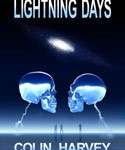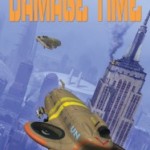Magma
I’ve said many times –in many places– that I don’t write because I want to, I write because I have to. It’s a compulsion, which if it’s blocked off, leads to something close to clinical depression (my name is Colin, and I am a creative junkie….)
I write because I have to. It’s a compulsion, which if it’s blocked off, leads to something close to clinical depression (my name is Colin, and I am a creative junkie….)
Ever since I ended a particularly brutal bout of writing a couple of weeks ago, with the synopsis and sample chapter for a new novel, I’ve been concentrating on administration and blogging.
Which is a pain, but keeping adequate financial records is a legal requirement as well as a particularly time-consuming chore; the other time sink has been completing an application form for an MA, which has taken up most of the last two weeks. and of course, there’s the blogging, which takes more time than you might expect from the haphazard way I seem to throw words onto the page.
In theory then, no time for writing fiction.
Which would seem to contradict my theory that you need to write every day. Except that by blogging I am writing (although it’s not fiction), and I’ve racked up enough experience (I have written over a million published words) not to need to write every day as much as a novice does. But still….
…the urge to write fiction runs deeper than even I realized. I awoke on Saturday morning with the scenes from an unfinished story called Razorbill Island running through my head.
For a variety of reasons I’ve needed for some time to road test the Scrivener package, and this was the perfect opportunity.
I only got a couple of hundred words written, but I’ve worked out what to do with the story now (the problems were as much structural as of writing the words).
Which just goes to show that even when I think I’m okay with my schedule, my subconscious knows better; that like magma beneath the Earth’s crust, the words are always ready to ooze out any time.





